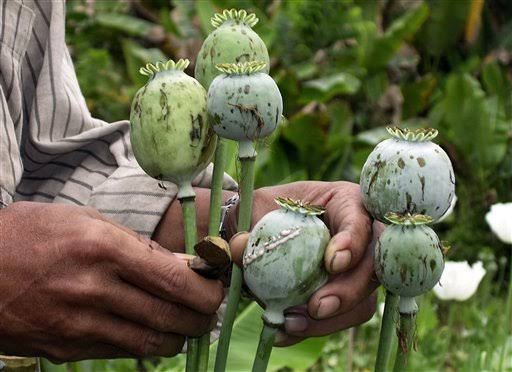Special Correspondent
Published:2025-11-08 19:39:51 BdST
Raw materials used to produce heroin entering Bangladesh from Myanmar
Raw materials used to produce the deadly drug heroin are entering Bangladesh from Myanmar, using the country as a transit route to India. Later, the finished heroin produced in Indian factories is being smuggled back into Bangladesh.
A regional office of the Department of Narcotics Control (DNC) recently alerted the authorities to this alarming development.
At the same time, the import of poppy seeds—used to grow opium-producing plants—has sparked new concern. These seeds have long been entering Bangladesh through deceptive methods, evading customs and other agencies. There are also reports of drug smuggling through Rohingya camps, prompting the government to order strict, high-level monitoring to curb narcotics trafficking.
Humayun Kabir, Deputy Director of the DNC Chattogram Division, said that the customs department is handling the confiscated poppy seeds. According to tests by the DNC’s chemical unit, the seeds showed no germination capacity. Samples have already been sent to Dhaka University, the Bangladesh Agricultural Research Institute in Gazipur, and the Chittagong University of Engineering and Technology (CUET) for verification.
DNC sources said that a confidential report from the Rajshahi regional office revealed that raw opium materials are being transported in bulk from Myanmar via the Chattogram Hill Tracts and Teknaf using cargo trucks. These are then trafficked through Sultanganj Port in Godagari, Rajshahi, into India.
The secret report, signed by then–Deputy Director Zillur Rahman, stated that although Bangladesh is not a drug-producing country, it is now severely affected by drug infiltration.
The main raw ingredient for heroin is opium. In the past, heroin entered Bangladesh from Afghanistan, passing through India into Godagari (Rajshahi) and Bagha–Shibganj (Chapainawabganj) border areas. But according to a UN report, Myanmar has recently become the world’s top opium producer.
Intelligence suggests that large consignments of opium are being trafficked from Myanmar across the Hill Tracts and Teknaf, then moved illegally into India via Sultanganj. There, the opium is processed in secret labs and repackaged as heroin, before being smuggled back into Bangladesh. Several syndicates in Chapainawabganj and Rajshahi are reportedly involved.
The report also mentioned that Sultanganj River Port in Godagari, recently opened for cargo transport, is being used as cover for this trafficking network. On April 22, police arrested Tariq, a major drug lord and controller of a heroin-smuggling syndicate, with 6.5 kilograms of heroin and Tk 13 lakh in cash.
Experts warn that although Bangladesh does not produce narcotics, its geographical location places it in grave danger. The country lies at the intersection of the Golden Triangle, Golden Crescent, and Golden Wedge—Asia’s three major drug-trafficking zones. As a result, international drug cartels find it convenient to use Bangladesh as a transit route.
Investigations reveal that traffickers are smuggling sticky opium resin—the semi-liquid substance extracted from poppy pods—in drums from Myanmar. Many law enforcement officials fail to identify it as a raw heroin ingredient, mistaking it for rubber sap or even fish feed. Once it reaches processing facilities, the resin reacts with acetic anhydride to produce opium, releasing dense smoke. A second reaction with acetic anhydride produces refined heroin.
Abu Taleb, former DNC Director, told reporters that law enforcement officials, especially in Chattogram Division, need specialized training to recognize such deceptive trafficking methods. Otherwise, smugglers could easily mislead them.
He added that although Border Guard Bangladesh (BGB) and the army have destroyed acres of poppy fields in remote forest areas, some regions are so inaccessible that eradication is impossible. However, he clarified that poppy seeds themselves cannot directly produce drugs.
Meanwhile, authorities are investigating two containers seized at Chittagong Port that were declared as bird feed but were found to contain banned poppy seeds imported from Pakistan.
The shipment—32 tons—was imported by M/S Adib Trading of Korbaniganj, Chattogram. The containers arrived on October 9 and were moved to a private depot, Saber Ahmed Timber Company Ltd, for clearance.
An internal DNC report further reveals that 66 entry points—by land and river routes—are currently being used to smuggle narcotics from Myanmar into Bangladesh. Of the 271-kilometer Bangladesh–Myanmar border, a significant portion remains unprotected, allowing traffickers to operate freely, often using Rohingyas for cross-border transport.
A senior Home Ministry official confirmed that following the DNC’s confidential report, the government has ordered increased coordination among the Border Guard (BGB), police, and other security agencies in and around the Rohingya camps and border regions. All agency activities within the camps are now under close surveillance.
Unauthorized use or reproduction of The Finance Today content for commercial purposes is strictly prohibited.


